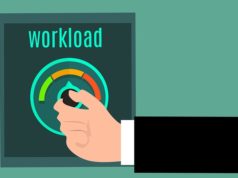
Pull up a chair and let me tell you a little story: I know of a guy who used to have a real cushy job on Wall Street back in the ’90s. He analyzed other companies for a living, made the big bucks, had the sweet lifestyle — the whole enchilada.
Then one day his boss gave him the assignment to research a new industry and report back on what opportunities may lay there. He did, and found that the nascent industry was actually growing at something like 2,600% a year— some amazing number. So yes, he reported back to his boss, but also could not get that number out of his head.
Not long after, with an understanding mate and a big dream, he quit his job to become self-employed in this new industry. They packed up the car, and as his wife drove west, he pounded out a business plan on his computer. When they got to Seattle, they rented a little place, and he started his business in the garage.
The guy? Jeff Bezos. The Industry? The Internet. The business? Amazon.com.
Self-employment allows you to chase the dream.
Beyond that, there are all sorts of other reasons to go the self-employment route, and more and more people are opting to do so, but first, what do I mean exactly by “self-employment?”
- The IRS says that self-employed people are freelancers and independent contractors, small business owners and partners — essentially anyone who earns their income from the operation of a business.
- I would add that they are, for the most part, one and two person businesses, although they may hire contractors or employees on occasion.
A woman in a startup with $1 million in venture-capital funding and eight employees is not self-employed per se, but the lawyer who left the firm to go solo is, as is your independent plumber, bookkeeper and Web designer.
There are many, many very good reasons to become self-employed, but let me begin with this one, this ironic one: Self-employment offers greater job security than working for someone else.
As we all know only too well, bosses can fire you. But when you are self-employed, hopefully you have a pretty good boss, and he won’t fire you. (Yes, he may work you too hard, but that’s a different issue.) Sure, you may lose a client — heck, you will lose a client — but when you are self-employed, you can go get another one, and likely, you already have other ones. When you are an employee, you have one “client,” and when that client lets you go, you are up a river without a paddle.
Other benefits of becoming self-employed:
- Flexible hours
- reative work — you wear many hats
- Ability to make more money
- Chance to do something you love
- Opportunities
On that last point, I know of a Gen Y woman who, like many people in her generation, has chosen to go the self-employment route rather than the traditional employee route, even though she is as smart as a whip, responsible and competent, has mad skills, and would make a great employee.
Instead, she freelances between two or three big clients at a time. This allows her to spend time with her young ones and sharpen her skills along the way. And just last week, one of her clients offered her a great new gig, one that will use her skills in new ways, and she couldn’t be happier. (And she gets to work after 8 p.m., when the kids go to bed.)
But it’s not just Gen Y that sees the genius of this type of work. Increasingly, Baby Boomers do, too. Whether its starting a new gig because retirement was a bore, or to build up their nest egg that was swallowed-up by the stock market meltdown, or because they were let go and face age discrimination and cannot find another job again, older Americans are increasingly joining the ranks of the self-employed.
And you can, too. This site is here to make your self-employment journey easier, more enjoyable, more profitable and fun.








